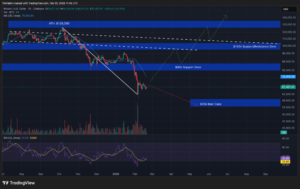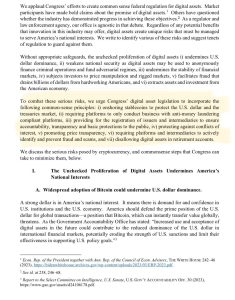Last updated:
 Why Trust Cryptonews
Why Trust Cryptonews

Japan’s Financial Services Agency (FSA) published a discussion paper titled “Examining the Structure of Regulatory Frameworks Related to Crypto Assets” on 10th April. The regulatory agency is seeking public opinion on the paper by 10th May.
The research paper highlights several key concerns, such as the extent of regulatory oversight, rules on information disclosure and transparency, industry-specific regulations (including the travel rule and staking practices), market access regulations, and measures to combat insider trading.
FSA Proposes to Classify Crypto Assets into Two Categories
The key proposal of the paper is to categorize crypto assets into two distinct types. Type 1, known as Funding/Business Crypto Assets, includes assets created for fundraising purposes, with the capital raised being directed towards various projects. Some utility tokens fall under this category.
On the other hand, Type 2, Non-Fundraising/Non-Business Crypto Assets, refers to assets that do not function as fundraising tools or business assets. Major cryptocurrencies, such as Bitcoin and Ethereum, are classified within this group.
The FSA highlighted the importance of addressing the information gap between issuers and users for Type 1 crypto assets, especially concerning the intended use of raised funds and project details. In contrast, for Type 2 crypto assets, the agency noted the challenge of linking many of these assets to a specific issuer, which complicates the enforcement of disclosure requirements.
Japan’s Financial Regulator Aims to Submit Crypto Bill in 2026
As reported earlier, Japan’s FSA plans to introduce a bill to parliament as early as 2026 to amend the existing crypto legislation.
If approved, the change would place cryptocurrencies in the same legal category as traditional securities, making them subject to insider trading laws that prevent the use of non-public information for personal profit.
Until now, digital assets have largely existed in a separate regulatory framework, with minimal oversight on trading practices that would be deemed illegal in conventional financial markets.

















